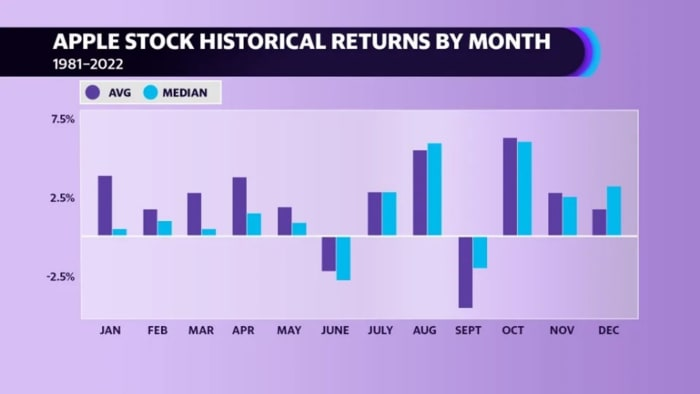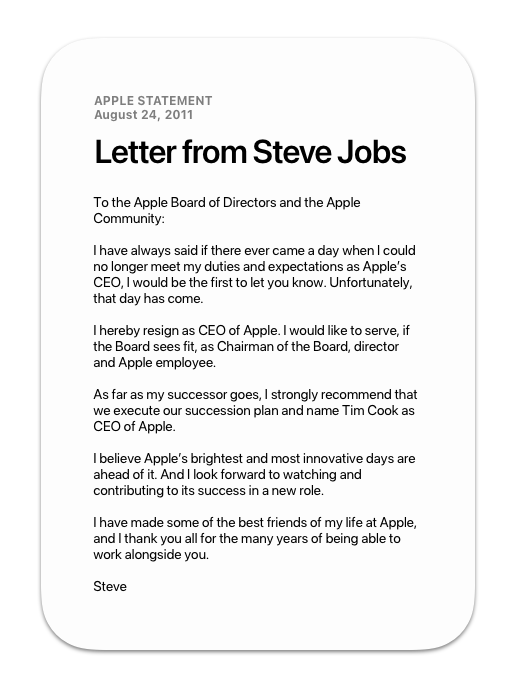Apple Stock Backdating: The Scandal that Shocked Silicon Valley

Apple stock backdating has long been a topic of controversy that intertwines with the legacy of Steve Jobs and the company’s corporate governance. The practice, which involves awarding stock options at earlier dates to secure lower exercise prices, raises serious ethical questions about executive compensation and transparency. In 2001, during a pivotal board meeting, Apple’s directors granted Jobs stock options that later became central to the Apple scandal, ultimately leading to allegations of stock option fraud. The fallout of this incident touched numerous individuals within the company, culminating in a $2.2 million settlement for Apple’s former general counsel, who was implicated in backdating practices. Understanding the implications of Apple stock backdating provides crucial insights into the complexities of corporate ethics and the ongoing scrutiny surrounding executive compensation practices.
The controversy surrounding Apple’s selective timing in stock option grants—often referred to as retroactive stock option awards—has crucial implications in discussions about ethical management in high-stakes corporate environments. This practice, which involves issuing stock options dated at times favorable to the executive, raises alarm bells regarding fair disclosure and investor trust. Dubbed as part of the larger Apple scandal, these actions have been scrutinized for their potential to mislead investors and distort the true benefits of executive incentives. Notably, concerns regarding executive compensation transparency are not confined to Apple but resonate across the technology landscape, where similar practices have faced public backlash. As we delve deeper into the repercussions of these decisions, the balance between executive rewards and corporate integrity remains a critical conversation in the business world.
Understanding Stock Backdating in Corporate America
Stock backdating is a controversial practice in corporate governance that allows companies to grant stock options retroactively. In essence, executives are awarded options at a time when the stock price was low, creating an avenue for substantial financial benefit once the stock price rises. This strategy can lead to significant rewards in terms of executive compensation, which makes it an enticing option for many companies, including technology giants like Apple. However, while legally permissible under certain disclosures, backdating raises ethical questions, especially if management fails to transparently report these transactions to shareholders.
The practice of backdating stock options was brought to the forefront during the Apple scandal involving Steve Jobs. By approving stock options with an earlier grant date, executives could take advantage of favorable market conditions without the knowledge of shareholders. This creates a misleading representation of the executive’s performance and undermines investor trust, which is crucial in the stock market. The manipulation of stock options underlines the need for stringent regulations and ethical standards in executive compensation.
The Apple Scandal: A Timeline of Events
The Apple stock backdating scandal unfolded dramatically in the early 2000s, beginning with a board meeting on August 29, 2001, when Steve Jobs received new stock options. The meeting, rather than being a simple approval of compensation, set in motion a series of events that would culminate in legal disputes and public scrutiny. The retrospective grant of stock options, particularly with the increase in Apple’s share price, drew questions about the legitimacy of the options awarded to Jobs and other executives. As investigations revealed fraudulent documentation, the scandal began to tarnish Apple’s reputation just as it was rising to prominence.
Throughout the scandal, Apple faced intense media scrutiny and legal challenges, culminating in a $2.2 million settlement by its former general counsel. The company’s attempts to navigate the fallout were complicated by the public’s perception of Steve Jobs, who, despite being exonerated, faced skepticism about his role in the backdating. The timeline from the initial grant of options to the legal resolutions highlighted the complexities of corporate governance and the importance of proper oversight to prevent such scandals.
The Legal and Ethical Implications of Executive Compensation
The legal framework surrounding executive compensation, particularly stock options, is critical in maintaining transparency and accountability within corporate America. The Apple stock backdating scandal illustrated the repercussions when companies prioritize personal gain over ethical standards. Mismanagement of backdated options not only led to legal challenges but also raised broader questions about corporate ethics and the responsibility of management to shareholders. Companies must navigate the fine line between competitive compensation packages and compliance with regulations to uphold investor trust.
Furthermore, the Apple incident prompted a reevaluation of corporate governance practices across various industries. As companies became aware of the legal ramifications of such practices, many opted to reform their compensation strategies. Disclosure of stock options and related executive compensation became a focal point for regulators and investors alike. This event served as a pivotal moment leading to increased scrutiny of executive pay and the mechanisms by which it is determined.
Steve Jobs and the Image of the $1-Per-Year CEO
Steve Jobs’ persona as a $1-per-year CEO was crafted to highlight his commitment to Apple’s success over personal financial gain. This self-styled image positioned him as a leader who was not solely interested in profit but rather in innovation and impact. However, the backdating scandal posed a significant challenge to this narrative. While Jobs was cleared of wrongdoing, the scandal complicated his image, as it contradicted the ideals of transparency and ethical leadership he championed.
In his deposition, Jobs stated that his motivations were not predominantly monetary, emphasizing the desire for recognition among peers instead. This sentiment resonated with many who viewed him as a visionary leading a tech revolution. Yet, the reality of executive compensation practices often paints a different picture where financial incentives can overshadow core values. The juxtaposition of Jobs’ symbolic $1 salary against the backdrop of such a scandal illustrates the complexities of leadership in corporate environments where financial motives and ethical considerations collide.
Backdating Stock Options: A Double-Edged Sword
Backdating stock options can be seen as a double-edged sword for corporations and their executives. On one hand, it allows companies to attract top talent by offering lucrative compensation packages that can significantly enhance executive motivation and performance. However, the scandal surrounding Apple underscores how this practice can quickly become a liability if transparency is lacking. Mismanaged backdating creates an environment ripe for fraud and can lead to devastating legal and financial consequences for both the company and its leadership.
Moreover, legitimate backdating practices must be clearly disclosed to investors and properly documented. Failing to do so undermines trust and can lead to allegations of stock option fraud, putting the company’s reputation on the line. The Apple case serves as a cautionary tale about the importance of robust compliance practices, emphasizing the need for oversight and ethical governance to prevent future scandals stemming from executive compensation mismanagement.
The Ripple Effect of the Apple Stock Backdating Scandal
The repercussions of the Apple stock backdating scandal extended far beyond the immediate legal outcomes. It shook investor confidence and led to increased scrutiny of stock option practices across the industry. As Apple was a widely respected company, the scandal had a ripple effect, prompting other corporations to reevaluate their compensation structures and disclosure practices. In response, regulatory bodies enhanced monitoring efforts surrounding executive compensation, calling for more stringent disclosure requirements to protect investors.
Beyond its direct consequences, the scandal influenced public perception of corporate ethics in the tech industry. Companies that thrived on innovation and creativity faced backlash as they now also had to adhere to stringent ethical standards and practices. This shift marked a pivotal moment in the realm of corporate governance, forcing entities to strike a balance between competitive compensation and moral integrity to maintain investor trust and public image.
The Role of the Securities and Exchange Commission (SEC)
The Securities and Exchange Commission (SEC) plays a crucial role in regulating corporate practices, including stock options and executive compensation. In the wake of the Apple stock backdating scandal, the SEC increased its scrutiny of publicly traded companies’ compensation disclosures to prevent misleading practices and ensure transparency. By enforcing compliance with regulations surrounding disclosures of stock option grants, the SEC aims to protect investors from deceptive practices that can damage market integrity.
The Apple incident highlighted the necessity for the SEC to adapt its regulatory framework to accommodate the complexities of modern corporate governance. As stock options are a central part of compensation for many executives, ensuring that these practices are conducted within legal and ethical boundaries is vital. This event catalyzed discussions around enhancing regulations to foster transparency and accountability in corporate America, ultimately benefiting investors and reinforcing trust in the financial markets.
Corporate Governance: Lessons from Apple
The Apple stock backdating scandal serves as an instructive case study in corporate governance, illustrating the necessity for rigorous oversight and adherence to ethical standards. Companies can draw valuable lessons from Apple’s experience regarding the implications of backdated stock options. Effective governance involves not only compliance with legal requirements but also establishing a corporate culture that values transparency and accountability to foster trust among investors.
This incident also prompted discussions around the need for independent oversight committees, enhanced compliance programs, and clearer guidelines on executive compensation practices. By examining the mistakes made in the Apple scandal, businesses can develop more robust governance structures that discourage unethical practices and promote long-term success without compromising integrity. The importance of learning from past mistakes cannot be overstated in creating an ethical corporate environment that prioritizes stakeholder confidence.
The Future of Executive Compensation in Tech Companies
In the aftermath of the Apple backdating scandal, the landscape of executive compensation within tech companies has evolved considerably. As firms strive to balance the need for competitive pay structures to attract talent with the imperative for ethical governance, innovative compensation models have begun to surface. The focus has shifted toward transparency, aligning executives’ interests with those of shareholders through performance-based incentives that emphasize long-term growth.
Additionally, tech companies are increasingly adopting comprehensive compensation reports to clarify the rationale behind their executive pay. Stakeholders demand accountability and ethical decision-making, pushing organizations to develop innovative compensation strategies that reflect these values. The lessons learned from the Apple scandal continue to shape the future of executive compensation as companies work to foster trust and demonstrate responsible governance in their practices.
Frequently Asked Questions
What is the Apple stock backdating scandal involving Steve Jobs?
The Apple stock backdating scandal pertains to allegations that Apple’s board, during a meeting on August 29, 2001, improperly granted Steve Jobs stock options that were backdated. This practice allowed Jobs to benefit from a lower strike price on the options, increasing his potential gains when the company’s stock price rose. Investigations revealed that former Apple executives, including general counsel, were involved in creating fraudulent documentation to conceal this backdating, leading to significant legal repercussions for Apple.
How did backdating stock options impact Apple’s executive compensation practices?
Backdating stock options can significantly affect executive compensation by allowing executives like Steve Jobs to secure stock options at a lower price than the market value. In Jobs’ case, options granted on August 29, 2001, allowed him to profit from Apple’s rise in stock price, contributing to a compensation package that raised eyebrows during the scandal. While backdating itself isn’t illegal if properly disclosed, the lack of transparency in Jobs’ case led to accusations of stock option fraud.
Why was Steve Jobs not held accountable for the Apple stock backdating allegations?
Steve Jobs was ultimately cleared of any wrongdoing in the Apple stock backdating scandal. An independent investigation found no evidence of misconduct by him or any current management. The board expressed complete confidence in Jobs following the findings, which emphasized that the issues were linked to prior administration and not directly to his actions.
What were the consequences of the Apple stock backdating scandal for the company?
The Apple stock backdating scandal prompted legal scrutiny and settlement payments, including $2.2 million paid by the former general counsel for her role in the stock option fraud. It raised questions about corporate governance and transparency within Apple, impacting its public image and potentially affecting investor trust during a pivotal time in the company’s resurgence in the mid-2000s.
How did the Apple stock backdating scandal affect public perception of Steve Jobs?
The Apple stock backdating scandal complicated public perception of Steve Jobs, contrasting his image as a $1-per-year CEO focused on innovation with the implications of corporate misconduct. Although he was ultimately cleared of wrongdoing, the incident highlighted the tension between Apple’s promoted ethos as a benevolent company and the realities of executive compensation practices, altering how the public viewed Jobs amidst his larger-than-life persona.
What legal ramifications did Apple face due to the backdating of stock options?
As a result of the backdating of stock options, Apple faced legal challenges, including investigations by the SEC and shareholder lawsuits. The scandal led to settlement agreements, including payments to resolve claims of stock option fraud. These legal ramifications underscored the importance of corporate governance and adherence to regulations regarding executive compensation and transparency.
What measures did Apple implement post-scandal to address executive compensation concerns?
Following the Apple stock backdating scandal, the company took measures to improve its corporate governance practices, including greater transparency in its executive compensation structures and stricter adherence to regulations governing stock options. These steps were aimed at restoring investor confidence and ensuring compliance with SEC guidelines to prevent future misconduct related to executive compensation practices.
How did the Apple stock scandal affect the tech industry regarding stock options?
The Apple stock backdating scandal served as a cautionary tale for the tech industry, prompting companies to scrutinize their stock option practices more closely. The fallout from the scandal led to a broader examination of executive compensation across the sector, fostering discussions about ethical practices and the need for greater transparency and accountability in corporate governance.
| Key Point | Details |
|---|---|
| Apple Stock Backdating Incident | On August 29, 2001, Apple’s board granted Steve Jobs stock options contributing to a backdating scandal. |
| Backdating Defined | Backdating involves issuing stock options that appear to have been granted earlier than their actual date. |
| Legal Standing | Backdating is legal if disclosed; however, failing to inform investors is illegal. |
| Steve Jobs’ Compensation | Jobs had 7.5 million shares backdated from $17.83 to a later price after market increase, making him $20 million richer. |
| Investigation Outcome | Steve Jobs was cleared of wrongdoing; investigation found no misconduct on his part. |
| Public Perception | Despite the scandal, Jobs was viewed favorably compared to other corporate leaders. |
Summary
Apple stock backdating became a significant issue for the company during its resurgence in the early 2000s. This scandal highlighted the risks associated with the practice of backdating stock options, which can lead to legal ramifications if not disclosed properly. Although Steve Jobs was ultimately cleared of any wrongdoing, the event impacted public perception of him and the company. It served as a reminder of the complexities of corporate ethics in a world where businesses are often held to different standards.
You may also like

iOS App Store Success: A Milestone in Digital Distribution

First Email from Space: The Macintosh Portable’s Legacy

Steve Jobs Resignation: A Turning Point for Apple
Archives
Calendar
| M | T | W | T | F | S | S |
|---|---|---|---|---|---|---|
| 1 | ||||||
| 2 | 3 | 4 | 5 | 6 | 7 | 8 |
| 9 | 10 | 11 | 12 | 13 | 14 | 15 |
| 16 | 17 | 18 | 19 | 20 | 21 | 22 |
| 23 | 24 | 25 | 26 | 27 | 28 | |